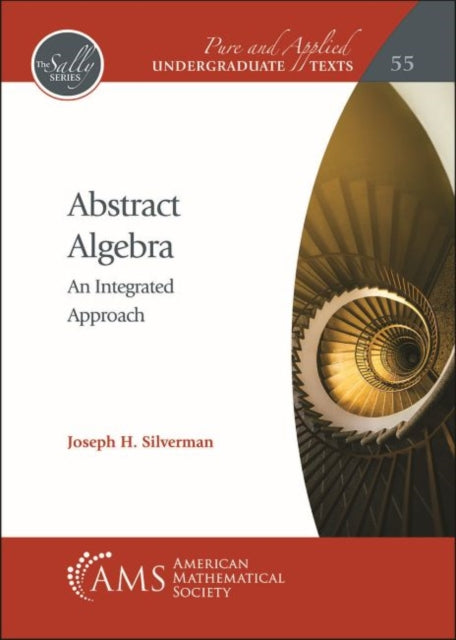Search results for ""author joseph h. silverman""

Springer-Verlag New York Inc. Advanced Topics in the Arithmetic of Elliptic Curves
In the introduction to the first volume of The Arithmetic of Elliptic Curves (Springer-Verlag, 1986), I observed that "the theory of elliptic curves is rich, varied, and amazingly vast," and as a consequence, "many important topics had to be omitted." I included a brief introduction to ten additional topics as an appendix to the first volume, with the tacit understanding that eventually there might be a second volume containing the details. You are now holding that second volume. it turned out that even those ten topics would not fit Unfortunately, into a single book, so I was forced to make some choices. The following material is covered in this book: I. Elliptic and modular functions for the full modular group. II. Elliptic curves with complex multiplication. III. Elliptic surfaces and specialization theorems. IV. Neron models, Kodaira-Neron classification of special fibers, Tate's algorithm, and Ogg's conductor-discriminant formula. V. Tate's theory of q-curves over p-adic fields. VI. Neron's theory of canonical local height functions.
£54.99

American Mathematical Society Abstract Algebra: An Integrated Approach
This abstract algebra textbook takes an integrated approach that highlights the similarities of fundamental algebraic structures among a number of topics. The book begins by introducing groups, rings, vector spaces, and fields, emphasizing examples, definitions, homomorphisms, and proofs. The goal is to explain how all of the constructions fit into an axiomatic framework and to emphasize the importance of studying those maps that preserve the underlying algebraic structure. This fast-paced introduction is followed by chapters in which each of the four main topics is revisited and deeper results are proven. The second half of the book contains material of a more advanced nature. It includes a thorough development of Galois theory, a chapter on modules, and short surveys of additional algebraic topics designed to whet the reader's appetite for further study. This book is intended for a first introduction to abstract algebra and requires only a course in linear algebra as a prerequisite. The more advanced material could be used in an introductory graduate-level course.
£50.22

Springer-Verlag New York Inc. An Introduction to Mathematical Cryptography
This self-contained introduction to modern cryptography emphasizes the mathematics behind the theory of public key cryptosystems and digital signature schemes. The book focuses on these key topics while developing the mathematical tools needed for the construction and security analysis of diverse cryptosystems. Only basic linear algebra is required of the reader; techniques from algebra, number theory, and probability are introduced and developed as required. This text provides an ideal introduction for mathematics and computer science students to the mathematical foundations of modern cryptography. The book includes an extensive bibliography and index; supplementary materials are available online.The book covers a variety of topics that are considered central to mathematical cryptography. Key topics include:classical cryptographic constructions, such as Diffie–Hellmann key exchange, discrete logarithm-based cryptosystems, the RSA cryptosystem, and digital signatures; fundamental mathematical tools for cryptography, including primality testing, factorization algorithms, probability theory, information theory, and collision algorithms; an in-depth treatment of important cryptographic innovations, such as elliptic curves, elliptic curve and pairing-based cryptography, lattices, lattice-based cryptography, and the NTRU cryptosystem. The second edition of An Introduction to Mathematical Cryptography includes a significant revision of the material on digital signatures, including an earlier introduction to RSA, Elgamal, and DSA signatures, and new material on lattice-based signatures and rejection sampling. Many sections have been rewritten or expanded for clarity, especially in the chapters on information theory, elliptic curves, and lattices, and the chapter of additional topics has been expanded to include sections on digital cash and homomorphic encryption. Numerous new exercises have been included.
£62.99



